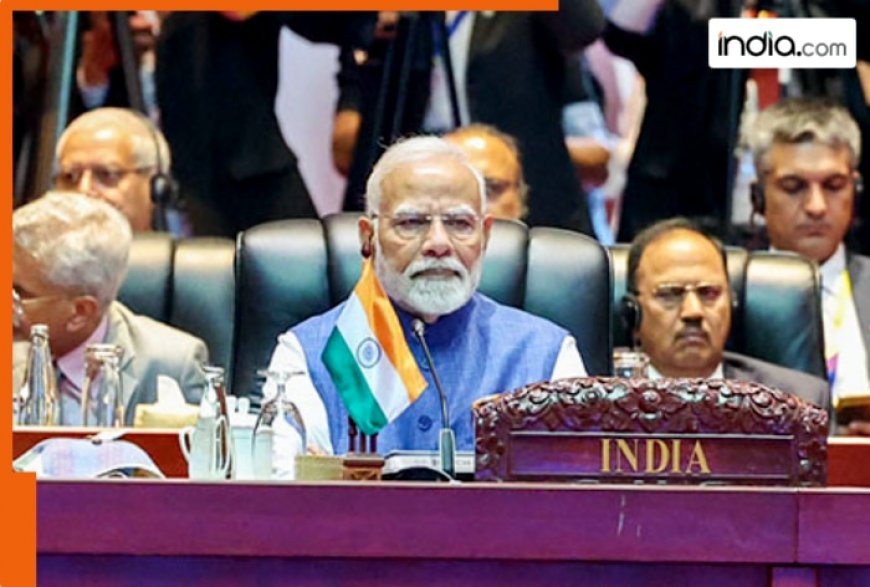PM Modi addresses East Asia Summit, says ‘Free, open Indo-Pacific vital for peace and progress’
PM Modi asserted that maritime activities should be conducted under the United Nations Convention on the Law of the Sea (UNCLOS) and the "foreign policy of regional countries should not be curbed in this."

Vientiane: A free, open and rules-based Indo-Pacific is incredibly important for the peace and progress of the overall region, Prime Minister Narendra Modi said on Friday, addressing the East Asia Summit in Laos here. The Prime Minister further said that the method to concentrate on peace in the Indo-Pacific region be of development, in place of “expansionism,” in indirect reference to China which has shown strong assertiveness in the South China Sea triggering geopolitical tensions.
“A free, open, inclusive, prosperous and rules-based Indo-Pacific is incredibly important for the peace and progress of the overall region. The peace, security and stability of the South China Sea is in the interest of the overall Indo-Pacific region,” PM Modi said while handing over his remarks on the Nineteenth East Asia Summit in Laos as of late.
He asserted that maritime activities be conducted less than the United Nations Convention on the Law of the Sea (UNCLOS) and the “foreign policy of regional countries should now not be curbed on this.”
“We agree with that maritime activities be conducted less than UNCLOS. It is able to well be important to be certain Freedom of Navigation and Air Space. An exceptional and effective Code of Conduct be made. And the foreign policy of regional countries should now not be curbed on this,” the Prime Minister said.
“Our approach be that of development, now not expansionism,” he added. He underscored that the ASEAN (Association of South East Asian Nations) is on the centre of India’s Indo-Pacific vision and Quad cooperation.
“India has always supported ASEAN Unity and Centrality. ASEAN is likewise on the centre of India’s Indo-Pacific vision and Quad cooperation. There are deep parallels between India’s Indo-Pacific Oceans Initiative and the ASEAN Outlook on Indo-Pacific,” he said.
Recently, the Quad Foreign Ministers Meeting joint statement issued on July 29 this year said that the countries of the bloc were collectively advancing a favorable and practical agenda to beef up the Indo-Pacific region’s sustainable development, stability, and prosperity, responding to the region’s needs.
Amid China’s coercive pressure on Taiwan in the wake of Lai Ching-te winning the presidential polls of the self-governed island and following tensions between China and the Philippines, the Quad foreign ministers had previously said they were “seriously pondering the situation in the East and South China Seas” and reiterated their “strong opposition to any unilateral actions that in quest of to vary the establishment by force or coercion.”
Notably, the East Asia Summit refers to the Meeting of Heads of State/Governments of the EAS taking part countries which is convened once a year. The EAS process change into initiated in 2005 with the convening of the first East Asia Summit in Kuala Lumpur, Malaysia. At its inception, the East Asia Summit comprised sixteen taking part countries, namely ASEAN Member States, Australia, China, India, Japan, New Zealand, and South Korea. In 2011, the US and Russia joined on the sixth East Asia Summit in Bali. On Thursday, PM Modi participated in the twenty first ASEAN-India Summit. His two day visit to Laos is incredibly important as this year marks a decade of India’s Act East Policy.
What's Your Reaction?



























































